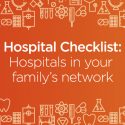Rethinking pharmacists’ provider status

Treating the “whole person” by empowering pharmacists to provide care
The imperative of “value over volume” in health care, especially in state Medicaid programs, is top of mind for state and federal policymakers.
In Pennsylvania, 24 percent of residents are now covered by Medical Assistance, having taken advantage of the Medicaid expansion under the Affordable Care Act.[1] Nationally, research has shown that individuals on Medical Assistance often face higher rates of chronic conditions, including heart disease, hypertension, diabetes, and asthma.[2] The prevalence of these conditions—individually or in combination with one another—contributes significantly to care costs for individuals and the health care system. As such, insurers are developing new strategies to support Medicaid members in successfully managing their chronic conditions to achieve better health outcomes.
UPMC Health Plan’s model for empowering pharmacists
UPMC Health Plan is no exception. Our unique payer-provider structure enables us to innovate along the entire care continuum, seamlessly connecting clinical care with interventions and services to deliver “whole-person” care. Our partnership with front-line clinicians who build personal, trusting relationships with their patients is critical to these approaches’ success.
Medicaid members with chronic conditions or complex pharmaceutical needs rely heavily upon their local pharmacists’ advice and input. With that fact in mind, UPMC for You and the Pennsylvania Pharmacists Care Network (PPCN) have launched a pilot program to reimburse pharmacists for delivering clinical services related to asthma and chronic obstructive pulmonary disease (COPD).
This program incentivizes pharmacists to use their status and knowledge as trusted health care professionals to engage members in disease and prevention education. These incentives will take the form of direct payments, in addition to the traditional payments made by private insurers for pharmacy services. This pharmacy-focused intervention aims to enhance and reinforce the coordination of pharmacy services with the extensive, world-class clinical resources and tools UPMC Health Plan offers.
The pilot program will leverage the pharmacist-patient relationship to extend the established care team for individuals already benefiting from Medicaid managed care coordination from UPMC for You.
Between February and December 2020, Medicaid enrollment in Pennsylvania increased by 9.7 percent. With Medicaid enrollment numbers expected to continue to grow in the wake of the coronavirus, a commitment to high-quality, well-coordinated, affordable care is crucial. By paying pharmacists for clinically appropriate services within the scope of their licensure, this pilot program seeks to change how we think about coordinating care and integrate pharmacists into “whole-person” care more fully. This expansion is especially important for members who may encounter barriers to care and rely upon Medicaid to access coverage. Such a partnership results in better use of scarce program dollars and better health outcomes for UPMC for You members.
[1] Medicaid matters to Pennsylvania. Modern Medicaid Alliance. No date. Accessed Feb. 11, 2021
[2] Identifying the most prevalent and costly chronic conditions in Medicaid. American Journal of Managed Care. No date. Accessed Feb. 11, 2021



